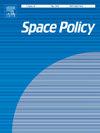土耳其空间政策的跨学科分析:经济和政治视角
IF 1.9
4区 社会学
Q2 INTERNATIONAL RELATIONS
引用次数: 0
摘要
近年来,土耳其在制定其空间政策方面投入了大量资金。土耳其太空政策的核心是减少对外国技术的依赖,发展相关领域的国家能力。然而,它也对国家安全、国防和政治权力产生影响。这项研究通过提供对土耳其空间政策的全面、跨学科分析,重点关注其经济和政治层面,为文献做出了独特的贡献。该研究以土耳其空间计划的简要历史概述开始,突出了其演变和战略里程碑。然后讨论了土耳其空间政策的经济影响,包括对该国宏观经济和微观经济环境的潜在利益和挑战。最后,该研究考察了土耳其空间政策的政治权力维度,包括国家安全、国防和地缘政治影响。本研究利用包括政府报告和学术文章在内的一系列资源,整合了政治经济学和国际关系的理论框架,提供了多方面的分析。研究结果表明,从经济角度来看,对太空计划的投资有望刺激经济增长,创造新的产业和就业机会,增加经济多样化,并导致人力资本的发展。太空计划将刺激各个领域的技术进步,从而提高效率和生产力。此外,一个成功的太空计划将提升国家的国际声誉,吸引更多的投资者,并扩大投资机会。从政治角度看,土耳其由于地缘政治地位,正在加强发射能力和导弹防御系统,以加强国家安全。土耳其的太空政策旨在将该国定位为中东及其他地区的主要太空大国,从而加强其在全球的战略和外交立场。本研究为提高土耳其航天事业的有效性和可持续性提供了重要的政策建议,强调了在教育、研究和国际合作方面进行基础投资的重要性。从这种跨学科的方法中获得的见解对政策制定者和学者来说是无价的,它提供了对国家空间计划的经济和政治影响的整体理解。本文章由计算机程序翻译,如有差异,请以英文原文为准。
An interdisciplinary analysis of Turkiye's space policy: An economic and political perspective
Turkiye has invested significantly in the development of its space policy in recent years. At its core, Turkiye's space policy aims to reduce the country's dependence on foreign technologies and develop national capabilities in related fields. However, it also has implications for national security, defense and political power. This study uniquely contributes to the literature by providing a comprehensive, interdisciplinary analysis of Turkiye's space policy, focusing on its economic and political dimensions. The study commences with a brief historical overview of Turkiye's space program, highlighting its evolution and strategic milestones. It then addresses the economic implications of Turkish space policy, including potential benefits and challenges for the country's macroeconomic and microeconomic environment. Finally, the study examines the political power dimensions of Turkiye's space policy, encompassing national security, defense, and geopolitical implications.
Drawing on a range of sources, including government reports and academic articles, this research integrates the theoretical frameworks of Political Economy and International Relations to offer a multifaceted analysis. The findings indicate that, from an economic perspective, investment in the space program is expected to stimulate economic growth, create new industries and job opportunities, increase economic diversification, and lead to the development of human capital. The space program will spur technological advancements across various sectors, thereby enhancing efficiency and productivity. Furthermore, a successful space program will elevate the country's international prestige, attracting more investors, and expanding investment opportunities. From a political perspective, Turkiye is enhancing its launch capabilities and missile defense systems to bolster national security due to its geopolitical position. Turkiye's space policy is designed to position the country as a leading space power in the Middle East and beyond, thereby strengthening its strategic and diplomatic stance globally.
This study provides critical policy recommendations to enhance the effectiveness and sustainability of Turkiye's space endeavors, emphasizing the importance of foundational investments in education, research, and international collaborations. The insights gained from this interdisciplinary approach are invaluable to policymakers and scholars, offering a holistic understanding of the economic and political ramifications of national space programs.
求助全文
通过发布文献求助,成功后即可免费获取论文全文。
去求助
来源期刊

Space Policy
Multiple-
CiteScore
3.40
自引率
36.40%
发文量
40
期刊介绍:
Space Policy is an international, interdisciplinary journal which draws on the fields of international relations, economics, history, aerospace studies, security studies, development studies, political science and ethics to provide discussion and analysis of space activities in their political, economic, industrial, legal, cultural and social contexts. Alongside full-length papers, which are subject to a double-blind peer review system, the journal publishes opinion pieces, case studies and short reports and, in so doing, it aims to provide a forum for the exchange of ideas and opinions and a means by which authors can alert policy makers and international organizations to their views. Space Policy is also a journal of record, reproducing, in whole or part, official documents such as treaties, space agency plans or government reports relevant to the space community. Views expressed in the journal are not necessarily those of the editors or members of the editorial board.
 求助内容:
求助内容: 应助结果提醒方式:
应助结果提醒方式:


